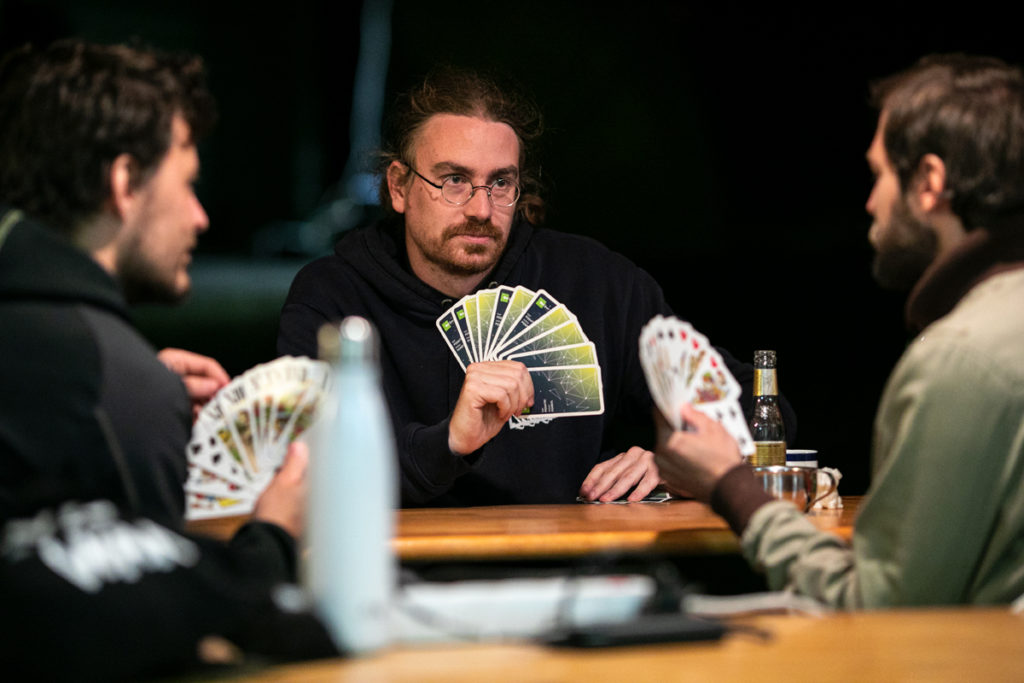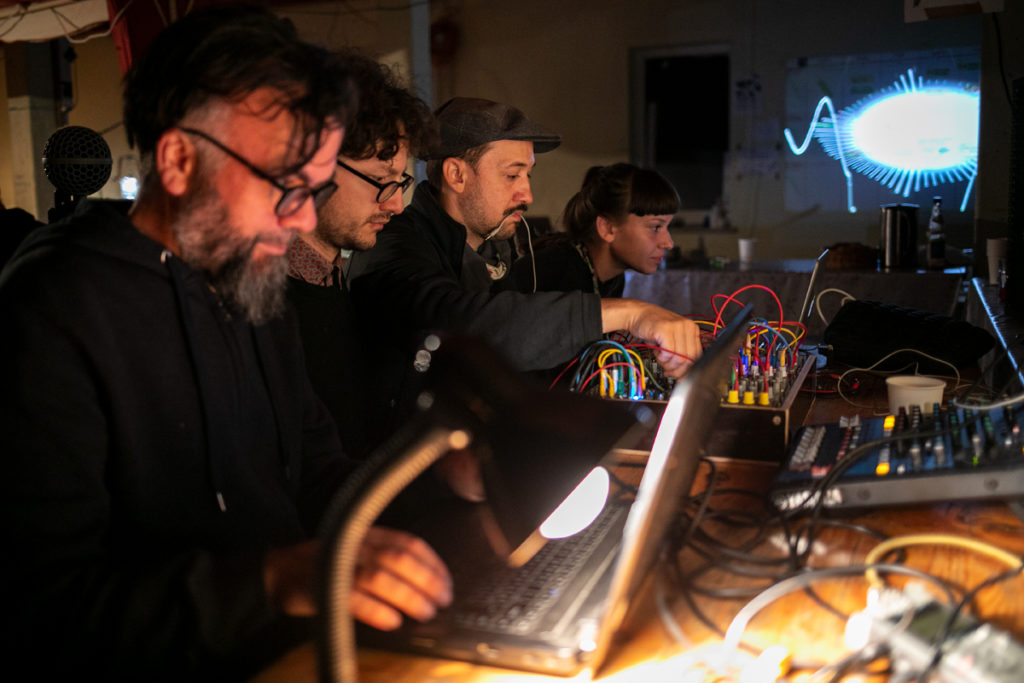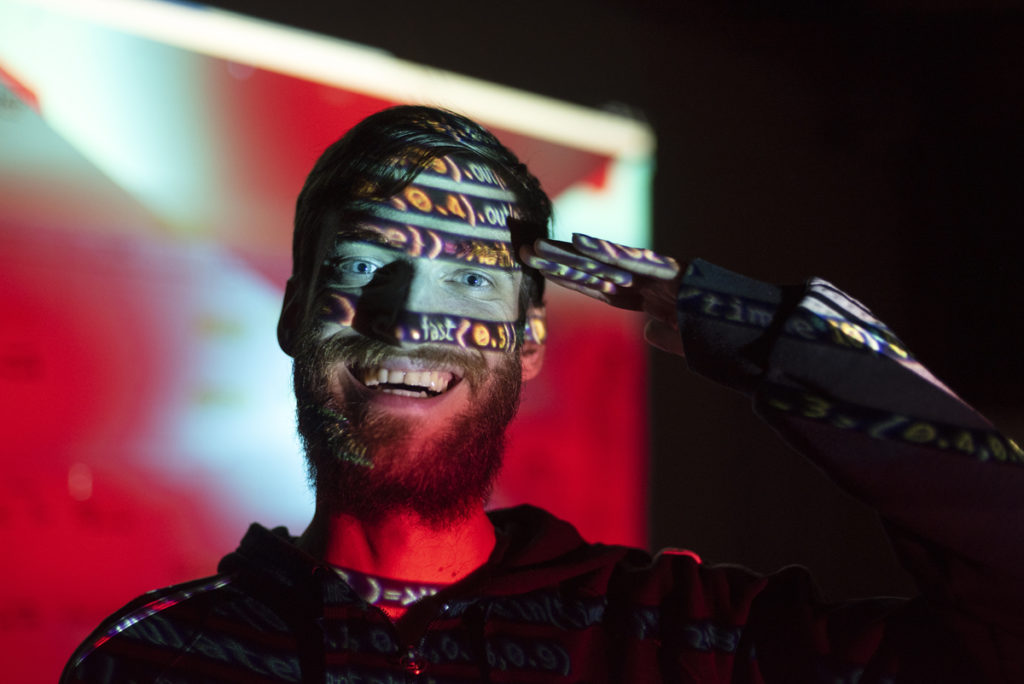It’s Friday?! A sultry morning started with the traditional and mandatory PIFcamp hike. Jumping into the pools of the (almost) icy cold Soča was reserved for the bravest and most heated heads. We keep their esteemed names in the editorial office!
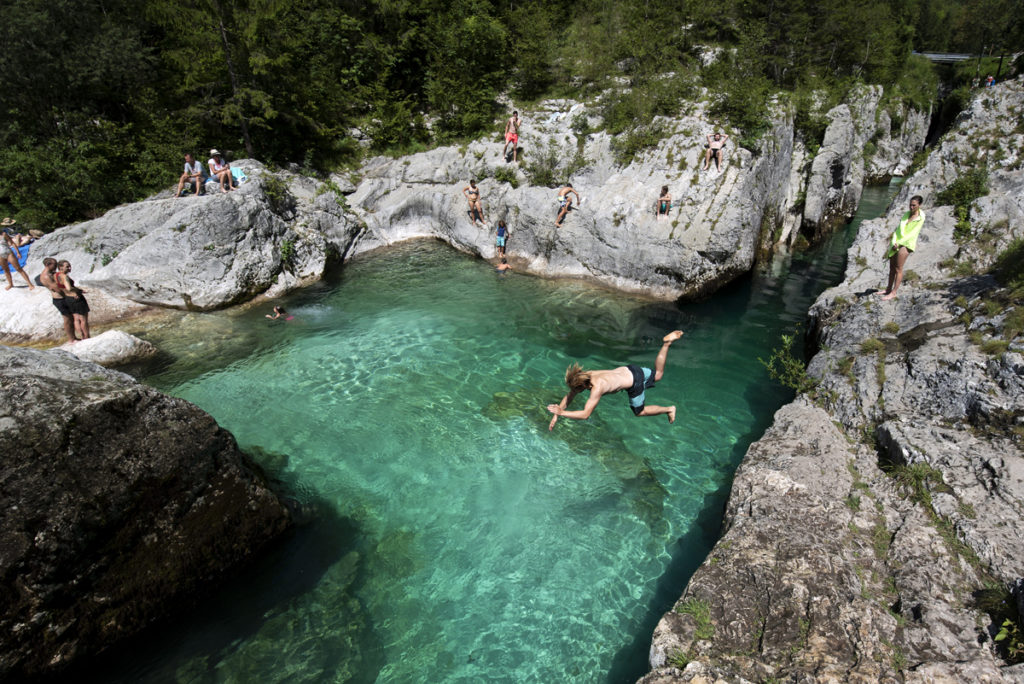
In the afternoon, the PIF members continued with their work. Rob Canning is developing a tool for musical performance related to geological processes in the Soča Valley.
Over the past few days, he has been collecting field recordings and sounds of the surrounding landscape. Using the SuperCollider platform for audio synthesis and algorithmic sound composition, he is developing a system that will also be able to process music by other creators. Initially, the research was supposed to lead to the release of a short EP, but PIFcamp opened the opportunity to connect with the research and projects of other participants – Rob will also test the system in Blaž’s DIY ambisonic dome. In line with his previous creative ethics, Rob will make all media available to the public, under a creative commons license (click).
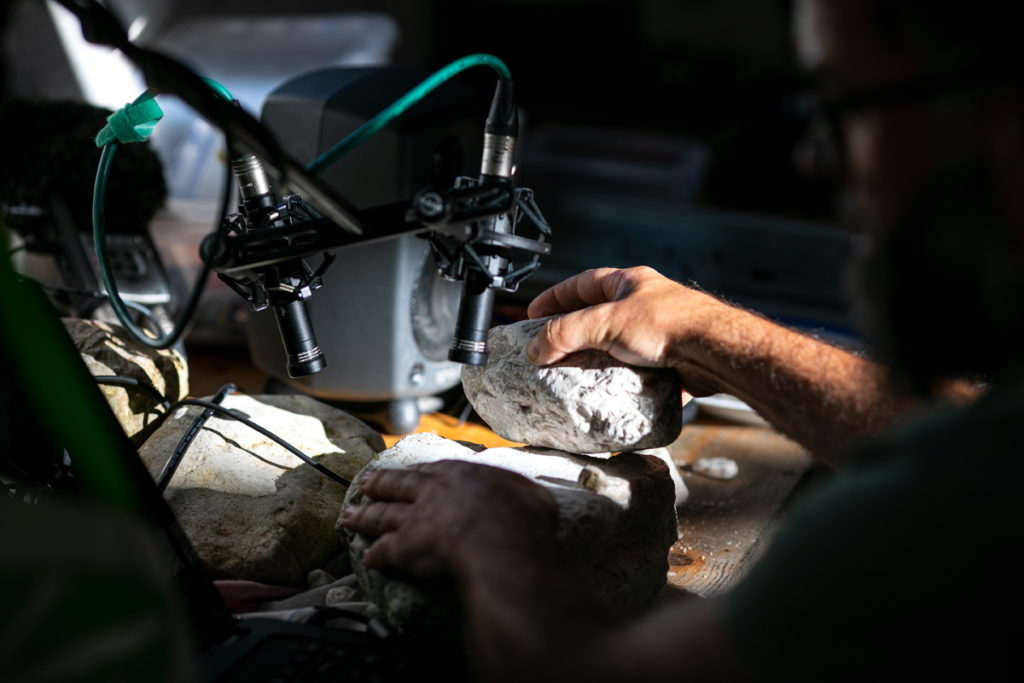
Darja prepared a workshop on hydrolates, tinctures and ointments from medicinal plants (among others Arnika, Rman, Thyme), which were collected by PIFcampers in the past days in the surrounding meadows.
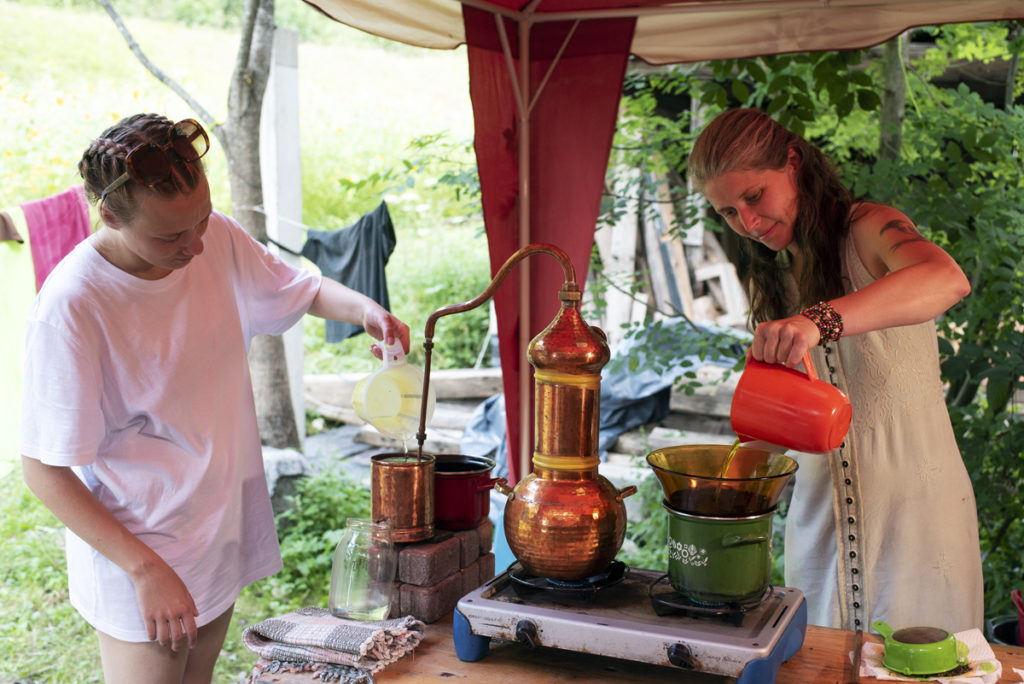
Katja introduced us to cyanotype, one of the earliest photographic processes, and a once popular image transfer process, characterized by the blue color of the final image. That is why it is also called blue printing, and this time it was done on paper. The main compounds are ammonium iron citrate and potassium iron cyanide. Under Katja’s guidance the participants developed their own photos. After the introduction to the chemical process, we set to work. Some have developed images from meadow flowers and – suited to 2020 – from a protective mask! After the chemical process the images have to sunbathe, thus Katja’s workshop will be on the schedule on Saturday as well.
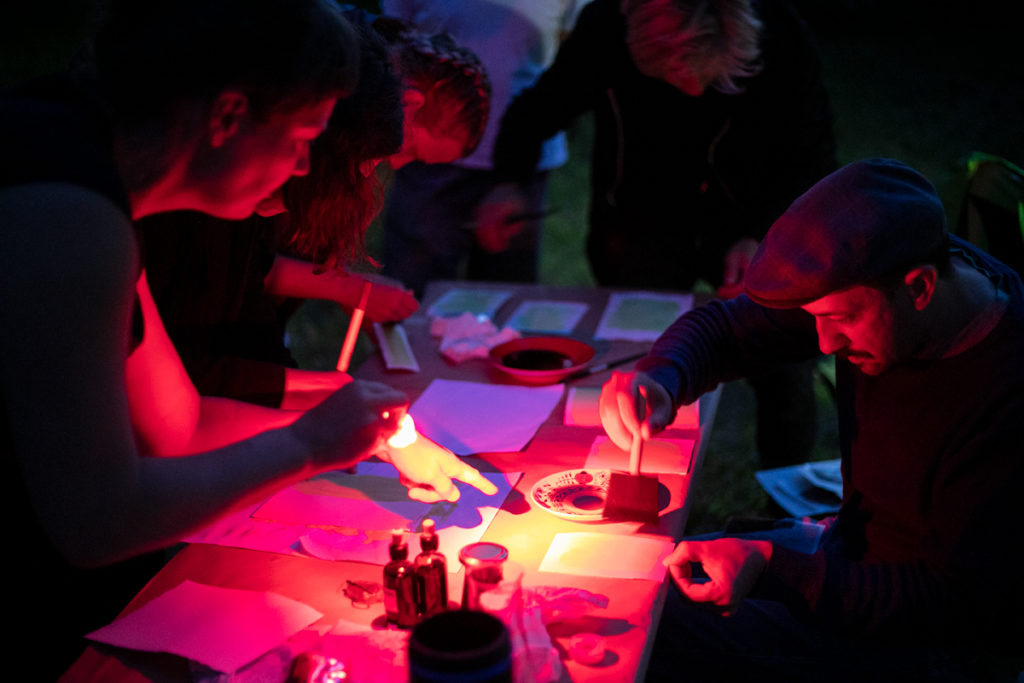
Robertina and Miha tested the protocol of the aquaforensic_2.0 workshop, which they developed together during PIFcamp. As the name of the project suggests, water forensics focuses on often overlooked contents from sea depths. At a lively and informative workshop, the mentors presented the development of the project from the very beginning, when Robertina and Gjino (Šutić – unfortunately absent this year) conducted preliminary field research (Ars Electronica Linz, etc.) and tested the content of pharmacological and toxic contents in rivers and seas. “The pharmaceutical industry is not interested in flushed parts of their medicines,” says Robertina, adding, “this project opens up a view of this silenced part and perhaps this can be a step in a direction of industries thinking more sustainably and less harmful to the environment”. In addition to microscopy of microorganisms, Miha also presented his invention from this year’s camp: sonified TSD sensor that reacts to conductivity and can be used to test liquids. The principle is this: more salt, more music! The maestro added salt by feeling.
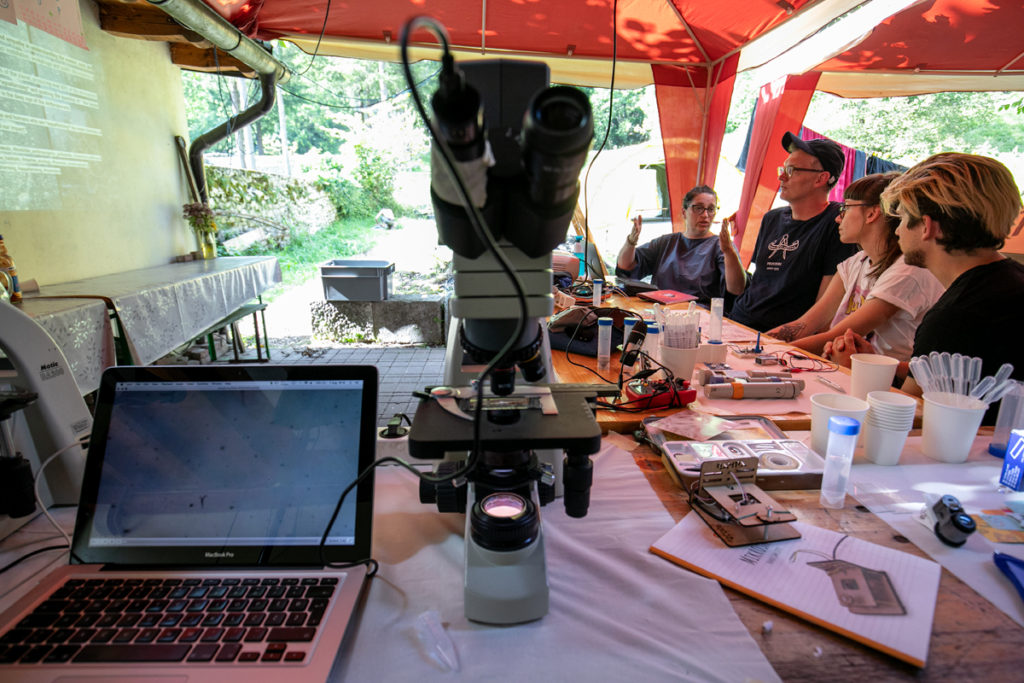
Stella and Črt enlivened the evening via a live-stream from Ljubljana, where they performed an audio-video set they were working on at PIFcamp.
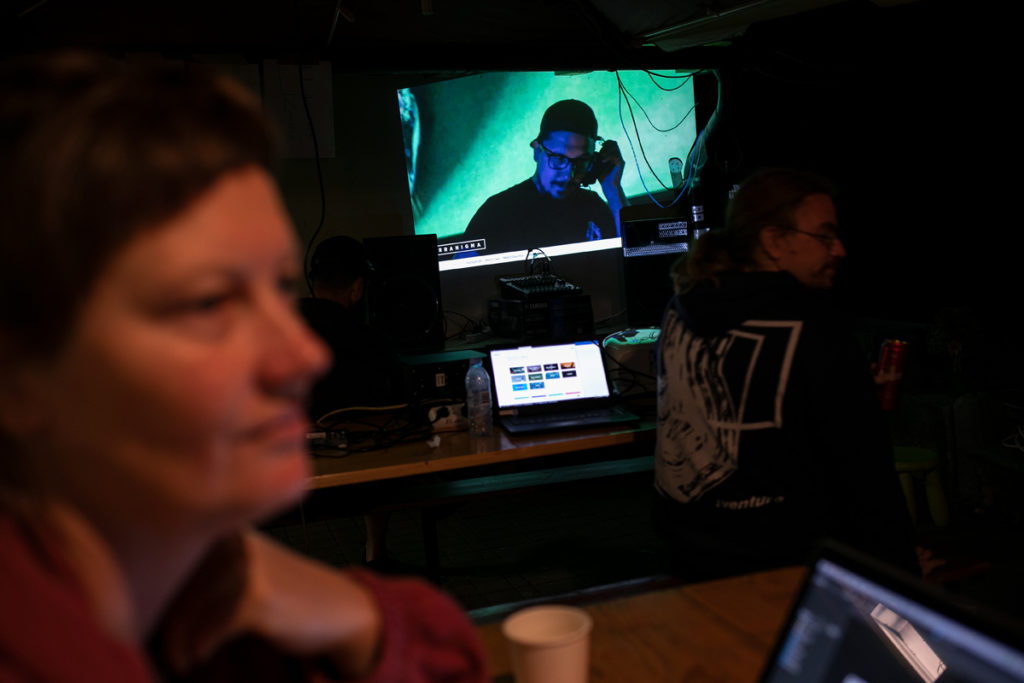
Last but not least, the card battles continued this evening as well and were accompanied by an audio-visual impro dessert offered ad-hoc by Rob, Klemens, Bernhard and Anja.
